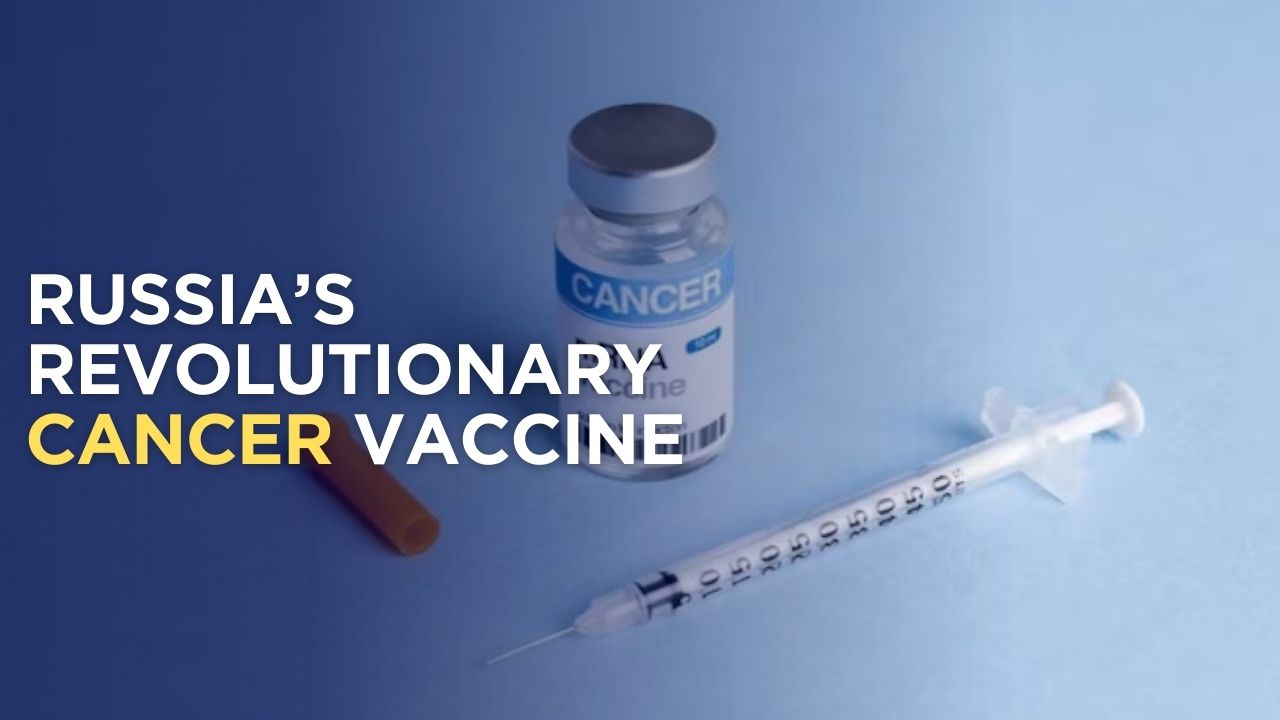In a move that could redefine cancer treatment, Russian scientists have unveiled a groundbreaking personalized cancer vaccine named EnteroMix. Developed using mRNA technology, the same platform that revolutionized COVID-19 vaccines, EnteroMix promises to offer a more precise, immune-based approach to treating some of the most aggressive forms of cancer.
What Is EnteroMix?
EnteroMix is a therapeutic cancer vaccine, not a preventive one. That means it is designed to treat individuals who already have cancer, by helping the body’s immune system recognize and destroy tumor cells. The vaccine uses messenger RNA (mRNA) to deliver genetic instructions tailored to a patient’s specific tumor, training immune cells to target tumor-specific neoantigens—proteins found only on cancer cells.
This highly personalized approach is part of a new frontier in oncology, where treatments are designed based on the genetic profile of an individual’s cancer rather than a one-size-fits-all model.
How It Works
The process begins by analyzing a patient’s tumor to identify mutations that produce unique neoantigens. These are then encoded into an mRNA sequence, which is formulated into a vaccine and administered to the patient. Once inside the body, the mRNA instructs cells to produce the neoantigens, triggering an immune response specifically directed at the cancer.
While this approach is not new in theory, Russia’s claim to have a functional, tested, and scalable version of such a vaccine sets a bold precedent.
Reported Success
Russian authorities have claimed that EnteroMix achieved 100% efficacy in early trials, especially in patients with colorectal cancer. Tumor shrinkage and slowed disease progression were also observed in melanoma and glioblastoma models.
The vaccine was developed by Russia’s National Medical Research Radiological Center in partnership with the Engelhardt Institute of Molecular Biology. According to initial data released, the vaccine showed:
- 60–80% tumor regression in preclinical trials.
- No severe side effects reported in early testing.
- Full immune system activation tailored to the patient’s tumor profile.
While these results sound promising, they come with a significant caveat: limited peer-reviewed evidence has been made public so far.
Public Access and Government Support
Russia’s federal medical authorities have stated that EnteroMix is “ready for clinical use” and could be rolled out in early 2025. In a surprising announcement, the government also declared that the vaccine would be offered free of charge to eligible cancer patients under a national health initiative.
This public health model is unprecedented in the realm of cutting-edge oncology, where such treatments are often prohibitively expensive in Western countries. If executed successfully, Russia could become the first country to nationally deploy a free, personalized cancer vaccine.
Global Implications and Skepticism
The announcement has drawn both attention and scrutiny from the international scientific community. While mRNA cancer vaccines are under development in multiple countries—most notably by biotech firms like Moderna, BioNTech, and CureVac—Russia appears to be the first to claim widespread readiness for use.
However, the lack of peer-reviewed publications, absence of transparent clinical trial data, and the ambitious claims of 100% efficacy have raised eyebrows. Experts caution that rigorous international validation is essential before any conclusions can be drawn.
“Extraordinary claims require extraordinary evidence,” said one oncology researcher from the European Society for Medical Oncology. “Without access to the full data, we must be cautious in interpreting these results.”
Looking Ahead
If EnteroMix lives up to its claims, it could represent a monumental leap in the fight against cancer—particularly for tumors that are difficult to treat with traditional methods. But real-world effectiveness, long-term safety, and reproducibility across diverse patient populations remain to be seen.
Still, the project represents an important shift: a move toward personalized, immune-based cancer therapy that is not just the domain of private biotech but is being pursued and potentially democratized by a national health system.
Russia’s EnteroMix vaccine may be one of the most significant developments in cancer treatment in recent years—or it may be an overhyped announcement pending real-world results. Either way, it has reignited global interest in personalized cancer immunotherapy, and its progress will be closely watched by oncologists, researchers, and patients worldwide.
As we await more data, one thing is certain: the war on cancer is entering a new, highly personal phase—and mRNA may be at the heart of it.



